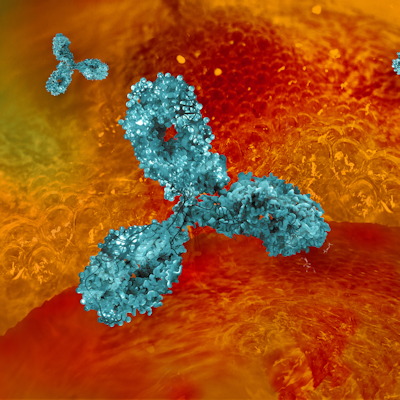February 17, 2023 -- A meta-analysis has found an investigational antibody is as effective at preventing respiratory syncytial virus (RSV) infection and associated negative health outcomes as the incumbent product.
The systematic review and network meta-analysis, details of which were published in JAMA Network Open, analyzed data from 14 clinical trials of four monoclonal antibodies to determine which is best at preventing infection with RSV, the leading cause of respiratory disease in children.
One of the antibodies, palivizumab, was approved in the U.S. in 2004. The developers of two of the other antibodies, motavizumab and suptavumab, discontinued development in 2010 and 2017 in response to regulatory and clinical trial setbacks. The fourth molecule, nirsevimab, is under review and could come to market in the U.S. later this year.
The discontinuation of two of the antibodies means the comparison of palivizumab and nirsevimab has the most real-world clinical relevance. Both antibodies reduced RSV-related hospitalization, infection, and supplemental oxygen use; no significant differences were seen between the results.
While the analysis suggests nirsevimab will lack an efficacy advantage over palivizumab if, as expected, it wins approval in the U.S. in the third quarter of 2023, it is differentiated in other important ways. Notably, the new antibody is given as a single dose and is designed to protect infants throughout the RSV season. Palivizumab is given as five monthly doses, making it more burdensome for healthcare providers, babies, and caregivers.
The analysis found that one of the discontinued antibodies, motavizumab, may have an efficacy advantage over palivizumab. AstraZeneca stopped work on the drug candidate, a derivative of palivizumab designed to have a higher affinity and a longer half-life, in 2010, after the U.S. Food and Drug Administration (FDA) turned down two requests for approval.
Experts convened by the FDA recommended against approving motavizumab because they were unsure if it was more effective than palivizumab and were concerned that it had a worse tolerability profile. The new meta-analysis of old data presents a more favorable impression of motavizumab, concluding that the monoclonal antibody was associated with a significantly larger reduction in RSV infection, intensive care unit admissions, and mechanical ventilation use than palivizumab.
The researchers noted the limitations of their study, including the fact that "insufficient evidence led to imprecision." The team identified a need for future clinical trials that evaluate the safety of antibodies in different populations and for more research into the cost-effectiveness of the interventions.
Copyright © 2023 scienceboard.net










